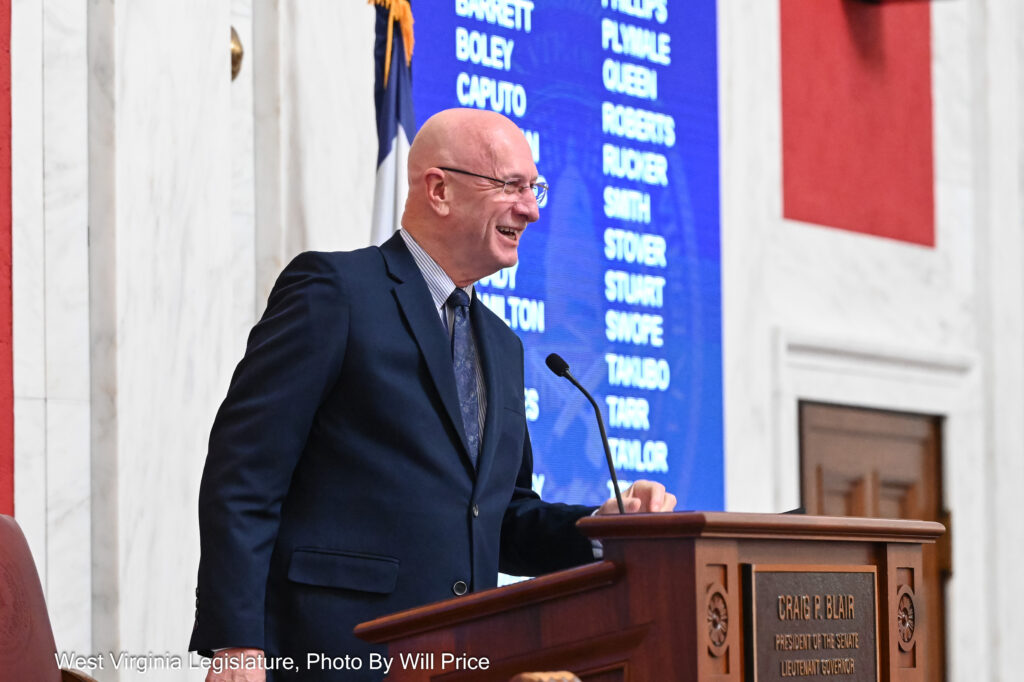The West Virginia Senate closed out its first week of session Friday after passing 36 bills and introducing 143 more. There have been a total of nearly 450 bills introduced thus far. Most of the 36 bills passed today, passed unanimously.
Last year the Senate suspended rules and fast-tracked 28 bills, moving them over to the House on Day 1. This year the Senate has gone through the procedural process, reading the bills on three different days.
Senate President Craig Blair, R-Berkeley, said the substantial amount of bills introduced is for efficiency and all bills that have been read thus far had been passed last year by the Senate but did not become law.
“We got 60 days to do the work of the people of West Virginia,” Blair said. “You guys demonstrate that you’re willing to press down on the accelerator and make a difference for the people in the state of West Virginia.”
Some notable bills passed include:
Senate Bill 162 which establishes a summer feeding for all programs. The bill was passed unanimously. Sen. Mike Woelfel, D-Cabell, said West Virginia has a 34 percent higher child hunger rate than the national average, and that around 15 percent of children in West Virginia face hunger during the summer months.
“What this does is, it sends the mandate to the counties and to the boards of education to say ‘are our kids eating during the summer in your county? And if they are, that’s good. If they’re not, let’s get some churches and other resources available out there to make sure these kids have nutrition,” Woelfel said.
Senate Bill 143 would allow education boards to contract former law enforcement officers and military veterans to provide armed security in public schools. Anyone convicted of domestic violence, driving under the influence, child abuse or any other conviction deemed exclusionary for contracted individuals by the county school board would not be eligible. The officers or veterans would need to have a concealed carry permit, pass a drug screening, and undergo physical and psychiatric exams. This bill passed unanimously.
Senate Bill 156 would consider wages paid by a contracted company by a state government entity confidential. This would prohibit a governmental entity from requiring a contractor to share records of wages paid to employees. There were three nay votes.
Senate Bill 154 would increase sentences for certain controlled substances and upgrade a possession charge of some narcotics and methamphetamines to a felony. The only nay vote on this bill was by Sen. Mike Caputo, D-Marion.




















